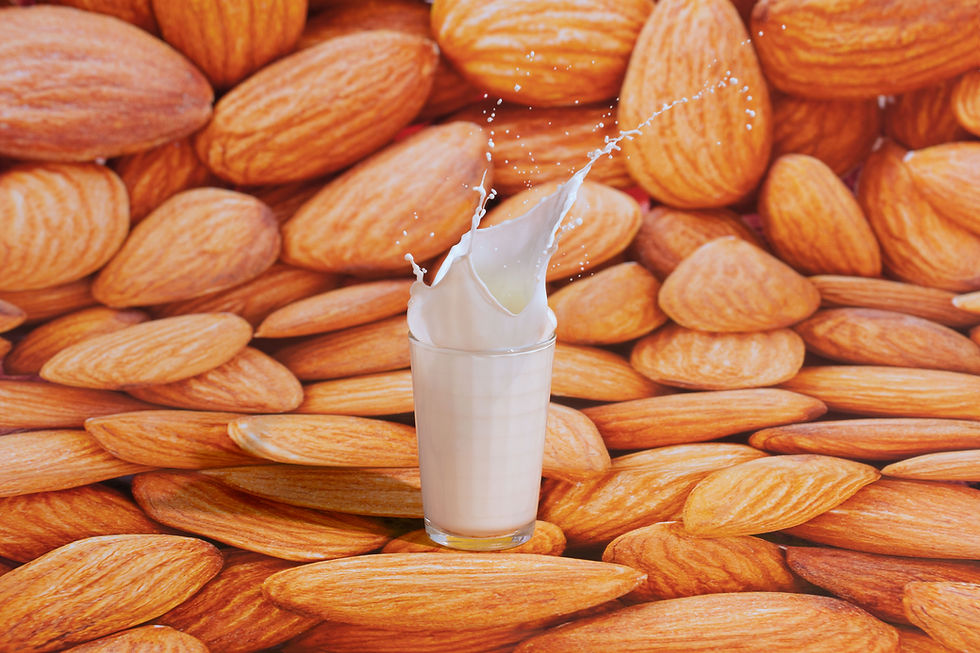The Truth About Milk: Is It actually Good for You?
- Jennifer Walker CPT-SNS-LBS-CHC

- Feb 1, 2024
- 3 min read
Updated: Feb 17, 2024

I recently had a client ask me about milk and calcium sources for those with a deficiency. And to my understanding, there are so many hormones that are pumped into the cows that milk isn't healthy for anyone. While diving into fully answering that question, here is where the studies are at:
So, is milk truly the elixir for strong bones?
Dr. Michael Greger, M.D., FALCM, sheds light on surprising findings that challenge the conventional belief. Harvard researchers conducted studies questioning the link between milk consumption in adolescence and a lower risk of hip fractures. Contrary to expectations, milk intake was not associated with reduced fracture risk; in fact, men showed a borderline increase.
The mysteries deepen as the long-standing enigma of higher hip fracture rates in populations with greater milk consumption is explored. Swedish researchers delved into the rare birth defect, galactosemia, revealing potential risks associated with daily milk consumption. Galactose, found in milk, has been linked to bone loss, premature aging in lab animals, oxidative stress, inflammation, and brain degeneration.
A comprehensive study of a hundred thousand men and women over 20 years exposed startling results. Women who consumed more milk had higher rates of death, heart disease, cancer, and bone fractures. Even men, though not exhibiting higher fracture rates, faced a dose-dependent increase in mortality with higher milk intake.
The findings challenge traditional views on milk's role in bone health.
As global milk consumption rises, the need for a randomized controlled trial to scrutinize milk's impact on mortality and fractures becomes urgent. The link between milk and well-being is more of a marketing tactic by the industry.

Not only were the results astoundingly negative for the average person, but were more of a risk specifically for men. Notably, a study exposed prostate cancer cells to organic cow's milk, revealing its potential to stimulate cancer growth, while almond milk had the opposite effect.
Delving deeper
Researchers analyzed various studies examining diet and prostate cancer. Both retrospective (looking back at cancer patients' diets) and prospective studies (following people over time) consistently suggest that milk consumption poses a risk for prostate cancer. A recent study even indicates that drinking milk during adolescence may increase the risk of developing cancer later in life.
Considering the significant role of hormones in cancer, it's surprising that there's limited research on the hormones present in our food. There's a call to monitor hormone levels in dairy and meat-containing foods, but this hasn't been implemented. Understanding the impact of hormones in our food, particularly concerning hormone-related cancers, is a crucial area that warrants more investigation.
In terms of the numbers, the latest meta-analyses of comprehensive studies on diet and prostate cancer indicate that milk consumption is associated with an increased risk. For those seeking alternatives, almond milk emerges as a potentially healthier choice, as suggested by the study exposing prostate cancer cells. This adds another layer to the discussion about the impact of dairy choices on our health.

So my recommendation, I feel, is pretty clear. The truth about milk is our body can't handle the hormones in cows milk and almond milk is a safe and healthy alternative for men and women. If you're allergic to almonds, there's oat milk, soy milk (which I don't recommend for men - a topic for another day), coconut milk, or flax milk.
What about those with a calcium deficiency?
The assumption of calcium supplements' safety faces scrutiny, as the risk-benefit analysis reveals potential harm outweighing benefits. Hip fractures, though devastating, show no consistent reduction with calcium supplements. Notably, the absorption rates from supplements are remarkably low compared to nutrient-rich food sources. A general rule to remember: manufactured nutrition is not as good as food source nutrition.
While supplements may marginally reduce overall fracture risk, the potential for excess heart attacks, strokes, and mortality raises concerns. The focus should be on obtaining calcium from diverse, nutrient-rich food sources rather than relying on potentially unsafe supplements. The good news is that the amount of calcium in most almond milk brands are only slightly lower to that of cows milk (about a 3:2 ratio). Non-dairy sources like leafy greens, tofu, almonds, and fortified plant-based milk are excellent alternatives to get the calcium you need.
HOWEVER! You should always talk to your doctor. If you are dangerously low on calcium, supplements may be your best option.
Source: Dr. Michael Greger, M.D., FALCM - NutritionFacts.org





Comments